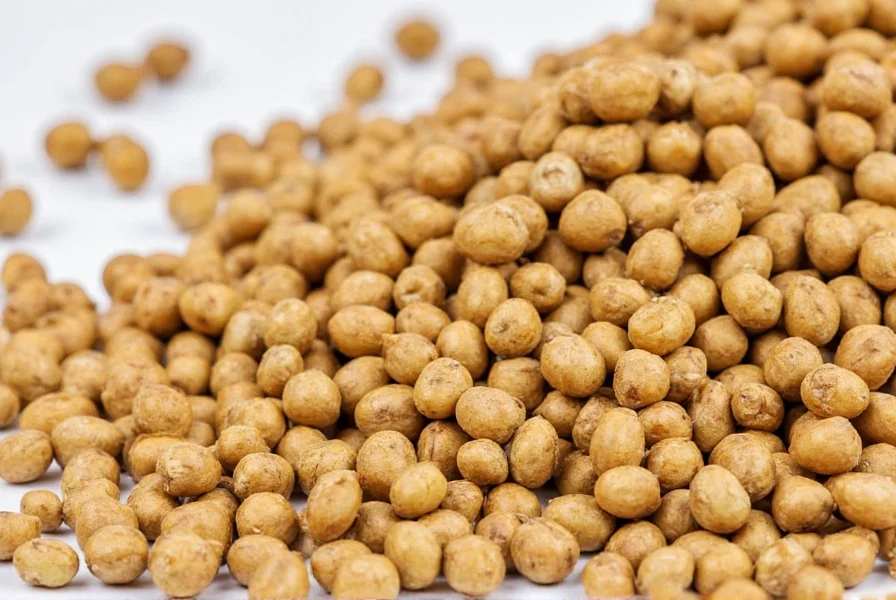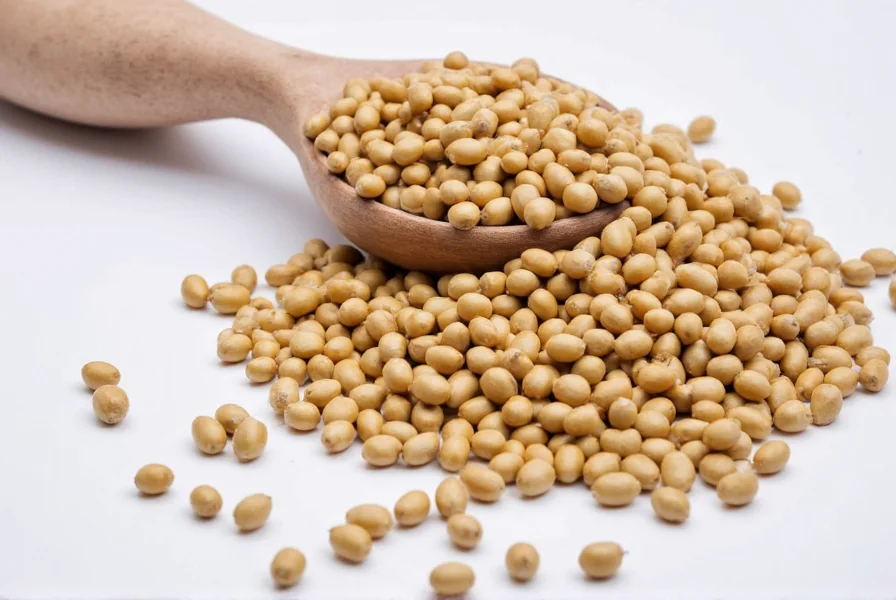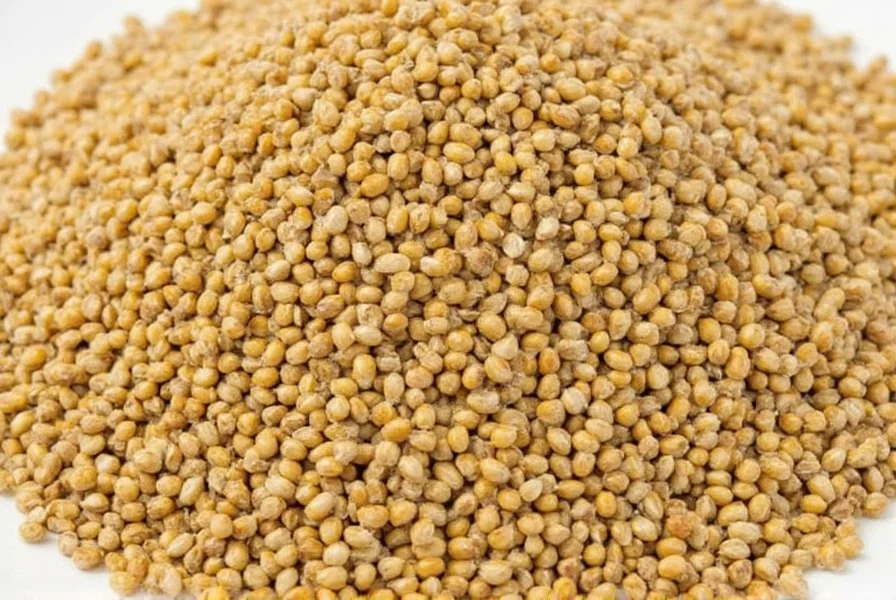Fenugreek (Trigonella foenum-graecum) has been used in traditional medicine systems for centuries, but modern research is now validating specific health benefits for men. This legume-derived herb contains bioactive compounds like fenuside and protodioscin that interact with male physiology in meaningful ways. Unlike many herbal supplements making bold claims, fenugreek has accumulated substantial clinical evidence supporting its effects on key aspects of men's health.
Understanding Fenugreek's Active Components
Fenugreek seeds contain several compounds that contribute to its physiological effects:
| Compound | Natural Concentration | Primary Function |
|---|---|---|
| Protodioscin | 0.5-1.5% | Supports testosterone production pathways |
| Fenuside | 0.8-1.2% | May influence libido and sexual response |
| 4-Hydroxyisoleucine | 0.2-0.5% | Supports healthy insulin function |
| Diosgenin | 0.3-0.8% | Potential hormonal modulation effects |
The concentration of these compounds varies significantly between raw seeds, extracts, and supplements. Standardized extracts provide more consistent effects than consuming whole seeds.

Research-Backed Benefits for Men's Health
Testosterone Support and Hormonal Balance
Multiple clinical studies demonstrate fenugreek's potential to support healthy testosterone levels in men. A 12-week randomized controlled trial published in Phytotherapy Research followed 50 men aged 25-52 who received either 500 mg of fenugreek extract or placebo daily. The treatment group showed a statistically significant increase in total testosterone (approximately 14.5%) compared to the placebo group.
Researchers believe fenugreek works through several mechanisms:
- Inhibition of enzymes that convert testosterone to estrogen
- Stimulation of luteinizing hormone production
- Support for healthy testicular function
- Reduction of sex hormone-binding globulin (SHBG)
It's important to note that fenugreek doesn't create testosterone from nothing—it supports the body's natural production pathways. Men with clinically low testosterone should consult healthcare providers rather than relying solely on supplements.
Libido and Sexual Function Enhancement
One of fenugreek's most consistently documented benefits is its positive effect on male sexual health. A double-blind study in Andrologia tracked 60 men with self-reported low libido. After six weeks of taking 600 mg fenugreek extract daily, 63% reported improved sexual desire compared to 26% in the placebo group.
The herb appears to work through both physiological and psychological pathways:
- Supporting healthy testosterone levels that influence sexual desire
- Improving erectile function through nitric oxide pathways
- Reducing performance anxiety through adaptogenic effects
- Enhancing overall energy and vitality
Unlike pharmaceutical interventions for sexual health, fenugreek works gradually and supports the body's natural function rather than creating immediate but temporary effects.
Blood Sugar Management
Fenugreek shows promise for supporting healthy blood sugar levels, which is particularly relevant for men's health as metabolic issues become more common with age. The compound 4-hydroxyisoleucine appears to stimulate insulin secretion and improve insulin sensitivity.
A meta-analysis of 12 clinical trials concluded that fenugreek supplementation significantly reduced fasting blood glucose and improved glucose tolerance. These effects may help men maintain healthy metabolic function, which indirectly supports testosterone production since insulin resistance correlates with lower testosterone levels.
Additional Potential Benefits
Emerging research suggests fenugreek may offer other advantages for men:
- Cholesterol management: Some studies show modest reductions in LDL cholesterol and triglycerides
- Exercise performance: Preliminary evidence suggests potential benefits for strength and endurance
- Prostate health: Early research indicates possible protective effects, though more studies are needed
- Body composition: May support healthy fat metabolism when combined with exercise
Effective Usage Guidelines
For men seeking to benefit from fenugreek, proper usage makes a significant difference in outcomes:
Dosage Recommendations
Research indicates optimal results come from:
- Standardized extracts: 500-600 mg daily
- Minimum duration: 6-8 weeks for noticeable effects
- Split dosing: 250-300 mg twice daily with meals
- Look for extracts standardized to 50% furostanol saponins
Safety Profile and Potential Side Effects
Fenugreek is generally well-tolerated at recommended doses, but some men may experience:
- Mild digestive upset (reduced by taking with food)
- Maple syrup-like body odor (harmless but noticeable)
- Rare allergic reactions in sensitive individuals
- Potential interactions with diabetes medications
Men with peanut or chickpea allergies should exercise caution as fenugreek belongs to the same plant family. Those with hormone-sensitive conditions or taking medications should consult healthcare providers before use.

Evaluating Quality Fenugreek Products
Not all fenugreek supplements deliver equal benefits. Consider these factors when selecting a product:
- Standardization: Look for products specifying saponin content (minimum 40-50%)
- Third-party testing: Certifications from NSF, USP, or ConsumerLab indicate quality verification
- Extraction method: Water or ethanol extracts typically preserve active compounds better than raw powder
- Transparency: Reputable manufacturers disclose exact ingredient amounts
Avoid products with exaggerated claims like "testosterone booster" or "cure for low T"—these often contain undeclared pharmaceuticals or make unsupported promises. Real benefits from fenugreek develop gradually through consistent use.
Realistic Expectations for Men Using Fenugreek
Understanding what fenugreek can and cannot do prevents disappointment and supports informed decisions:
- Effects build gradually over weeks, not days
- Results vary based on individual physiology and baseline levels
- Works best as part of comprehensive health approach (diet, exercise, sleep)
- Not a replacement for medical treatment of clinically low testosterone
- Most effective when used consistently for at least 8-12 weeks
Men should track their experience with fenugreek by noting changes in energy, mood, sexual function, and physical performance rather than relying solely on occasional blood tests, which can fluctuate significantly.
Conclusion
Fenugreek represents one of the better-researched herbal options for supporting men's health, particularly regarding testosterone support, libido enhancement, and metabolic health. While not a miracle solution, consistent use of quality fenugreek extracts at appropriate doses can deliver meaningful benefits for many men. As with any supplement, realistic expectations, proper usage, and attention to individual response patterns maximize potential benefits while minimizing risks. Men with specific health concerns should consult healthcare professionals to determine if fenugreek fits appropriately within their overall health strategy.
Frequently Asked Questions
How long does it take to see benefits from fenugreek for men?
Most clinical studies show measurable benefits emerging after 6-8 weeks of consistent daily use at appropriate doses (500-600 mg of standardized extract). Sexual function improvements may appear within 4-6 weeks, while testosterone effects typically require 8-12 weeks. Individual results vary based on baseline levels, overall health, and consistency of use.
Can fenugreek increase testosterone in men with normal levels?
Research suggests fenugreek primarily supports the body's natural testosterone production pathways rather than creating excessive levels. Studies show modest increases (typically 10-15%) in men with normal to low-normal testosterone, but it doesn't push levels beyond natural physiological ranges. Men with already optimal testosterone levels may experience minimal hormonal changes but could still benefit from other effects like improved libido or blood sugar management.
What's the best form of fenugreek for men's health benefits?
Standardized extracts providing 500-600 mg daily of extract standardized to 40-50% furostanol saponins deliver the most consistent results based on clinical research. Look for products specifying protodioscin content (minimum 20-25 mg per daily dose). Whole seeds or powders require much larger quantities (5-10 grams daily) to achieve similar effects and may cause more digestive discomfort.
Does fenugreek interact with common medications men take?
Fenugreek may interact with diabetes medications by enhancing their blood sugar-lowering effects, potentially causing hypoglycemia. It might also interact with blood thinners due to its coumarin content. Men taking antidepressants, especially MAO inhibitors, should consult doctors before use. Always discuss new supplements with your healthcare provider, particularly if you have chronic health conditions or take prescription medications.
Can fenugreek help with age-related testosterone decline?
Research indicates fenugreek may help mitigate some symptoms of age-related testosterone decline by supporting the body's natural production pathways. A study in Clinical Interventions in Aging found men over 50 taking fenugreek extract reported improved sexual function and vitality compared to placebo. However, it doesn't reverse the natural aging process of testosterone production and works best as part of a comprehensive approach including proper nutrition, exercise, and sleep.











 浙公网安备
33010002000092号
浙公网安备
33010002000092号 浙B2-20120091-4
浙B2-20120091-4